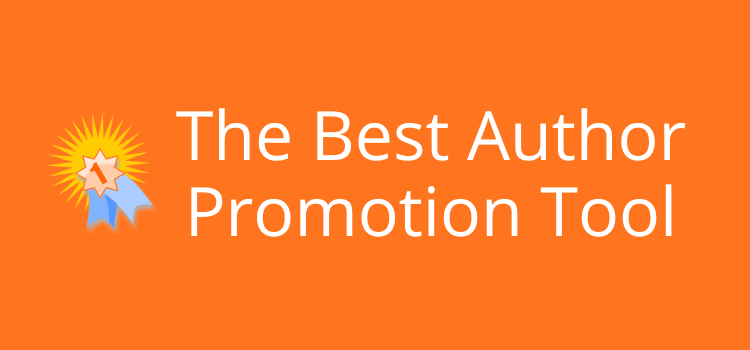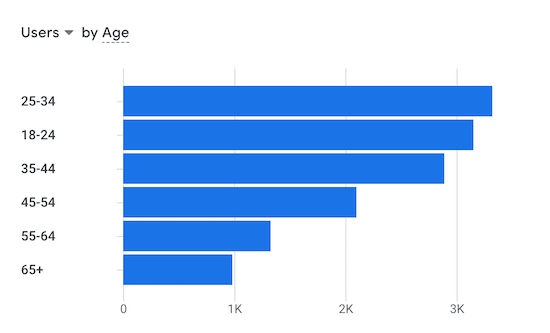
What’s the best author promotion tool you can use? It is probably right under your nose right now. It’s your blog.
But how well are you using it to promote your writing or books? Most writers have a blog but do not always take full advantage of it.
Even if you’ve been a bit lazy and haven’t added new content for a while, you can always improve its performance if it is not bringing you enough traffic or attention.
That’s why your blog is such a valuable asset. It’s always there for you to use to promote your writing.
The biggest advantage of a blog is that it’s yours. No one can take it away from you.
You can export your posts, change platforms, upgrade, add features, gain subscribers, or monetize your blog.
Unlike social media accounts, you are not restricted by someone else’s rules or terms and conditions of use.
If you currently use a free blogging site such as Blogger, Weebly, or Wix, you can move your blog posts to a new platform without much effort.
Most bloggers start with a free platform but later migrate to a better platform like WordPress.
But author blogs generally don’t rank very well on Google and other search engines, and the reasons are simple.
The leading cause is that the URL for a free blog makes it difficult to rank because it is labeled with the platform—for example, http://mysite.blogspot.com/ or https://mysite.wordpress.com/.
The other reason is that the content, which is the posts and articles, is not authoritative enough or connected to a single subject area.
But it’s relatively easy to fix both of these issues if you want to invest the time in improving your current blog.
If you do it right, you can expect improvement in your monthly traffic.
The key elements that will improve your blog
I’m an author like you, and I have been blogging for a long time. Long enough to have made all the mistakes you can imagine.
Over the years, I have tried different platforms, subject areas, and SEO tricks and had my ups and downs with Google algorithms.
But I got there in the end and now attract around 100,000 users per month to my blog.
What were the key factors that helped me succeed? In a nutshell, I concentrated on one specific topic and learned how to write for my readers.
Of course, there was a bit more to it than that, so I’ll list the factors in order of importance for you.
Then you can pick and choose which ones you might be able to use to improve your blog and turn it into a useful and better writing and author promotion tool.
1. Concentrate on a single topic
Many author blogs are a collection of random posts on different topics, reposted articles from other blogs, Twitter and Facebook feeds, blog rolls, and various widgets and gadgets.
Blogs like this, with a lot of clutter, will never attract a lot of traffic. For search engines, it’s impossible to know what the blog is about, so there is little chance of indexing pages.
The only way to fix this is to decide on your topic and stick to it. It could be book formatting, ebook self-publishing, book cover design, or any other topic related to writing and books.
But you don’t have to go with only writing topics. If you have any area of expertise, like jewelry design, pet care, or glass painting, they will work equally well.
It will still be your writing or author blog, and you can continue to promote your books.
But by concentrating on one specific topic, you can become known as an expert in your field and, in time, perhaps a point of reference for readers.
Most of all, search engines will then start to take notice of the articles you post.
2. Register an appropriate domain name
Choosing a domain name involves a little research.
I’ve listed it as number two because you need to decide on your blog topic before you can begin.
Ideally, you need a .com address. But it’s becoming difficult to find short domain names.
However, with imagination and a bit of patient research, you can find suitable domain names.
The cost is usually around $10.00 per year, which is inexpensive.
Once you register your domain name, you can use it on most of the popular platforms to replace the labeled address.
If you decide to migrate to a self-hosted WordPress site, you can transfer your domain name.
3. Choice of blog platform
Free blog sites will rarely rank.
But some offer a premium version that gives you a lot more freedom and features to help you use your blog better as an author promotion tool.
If you want to get into serious blogging, a self-hosted WordPress site is always the best option, especially if you want to use advertising on your site.
But it’s not for everyone because you definitely need good technical skills.
However, if you want to monetize your blog with affiliate marketing, you can do this with almost all blogging platforms.
But remember, you can always change your mind and migrate your blog to another platform in the future.
4. Know your readers
I mentioned this point earlier, and it’s one of the best ways to improve your blog.
Know your readers and write for them.
Sure, you can’t know them personally. But you can get an idea from a few different avenues.
My primary source is comments.
When you read through the comments you receive on your blog, you can get a good sense of what readers are looking for and interested in and the questions they ask.
If you use Google Analytics, you can also get some basic demographic data.
While I knew my readership was mostly English speaking and around 50/50 for gender, the age data gave me a surprise.

As you can see, my readers are much younger than you might imagine for a publishing blog.
One other way to learn about your readers is through social media. When you share a post, take note of the people who share or like your posts.
Because of this information, I changed the way I write a little.
I certainly didn’t want to lower the level of my writing or style.
But I spend fewer words now describing things like how to use a new app or software. It’s nothing new for younger readers, and learning to use a new tool is intuitive.
I also now write in a style that delivers information a little bit faster, with less fluff.
Once you know your readers, you can adapt your writing style and topics to suit them better.
5. Keep your site plain and simple
When it comes to site design and formatting, less is far more.
Avoid all the fancy widgets and clutter in the sidebar, and go for a plain and simple design that highlights your writing.
Choose an easy-to-read font on a white background.
Even if you do nothing other than this to your blog, it will be a worthwhile improvement.
6. Learn a little about SEO
You don’t need to become an expert, but reading Google’s starter guide can give you some guidance.
Try to adopt some of the basics, including an excellent About Page, an author box on each of your articles, and clear paragraph headings.
If you can, use an SEO plugin to help you. I use Yoast, but there are many others.
You don’t need to follow every recommendation. But it will help you improve your SEO.
7. Track your progress
You can find many free tools to track your site performance.
But the best two are Google Analytics and Google Search Console.
Make sure you register your blog with these two, so you can check how well your blog is doing over time.
You will discover which posts are the most popular with your visitors, and you can use the data to help you write better new articles.
8. Look for extra opportunities
Yes, your blog is your best author promotion tool, but that doesn’t mean that its only use is to help you sell books.
You have a lot of options to increase your income from your writing.
Affiliate marketing is a very popular and quite an easy way to earn money from your blog.
Once you focus your blog on one topic, you can look for opportunities in that area.
Another way is to add display advertising to your blog. Adsense is one of the easiest for new bloggers, but it’s preferable to have a self-hosted blog to qualify.
There are many ways to monetize a blog, but you need a lot of traffic first. That’s why I have it listed in last place.
Summary
It does take a little time and effort to improve your blog.
But the rewards are there if you want to try.
You don’t need to tackle all of the eight items I listed above in one go.
However, narrowing down the subject focus of your blog and using a clean and easy-to-read site design are two that can help you very quickly.
If your blog isn’t performing as well as you would like as your writing or author promotion tool, you can always improve it.
Take it one step at a time, and you’ll get there.
Related reading: The Pros And Cons Of Blogging For Authors




This is extremely helpful! Thank you!